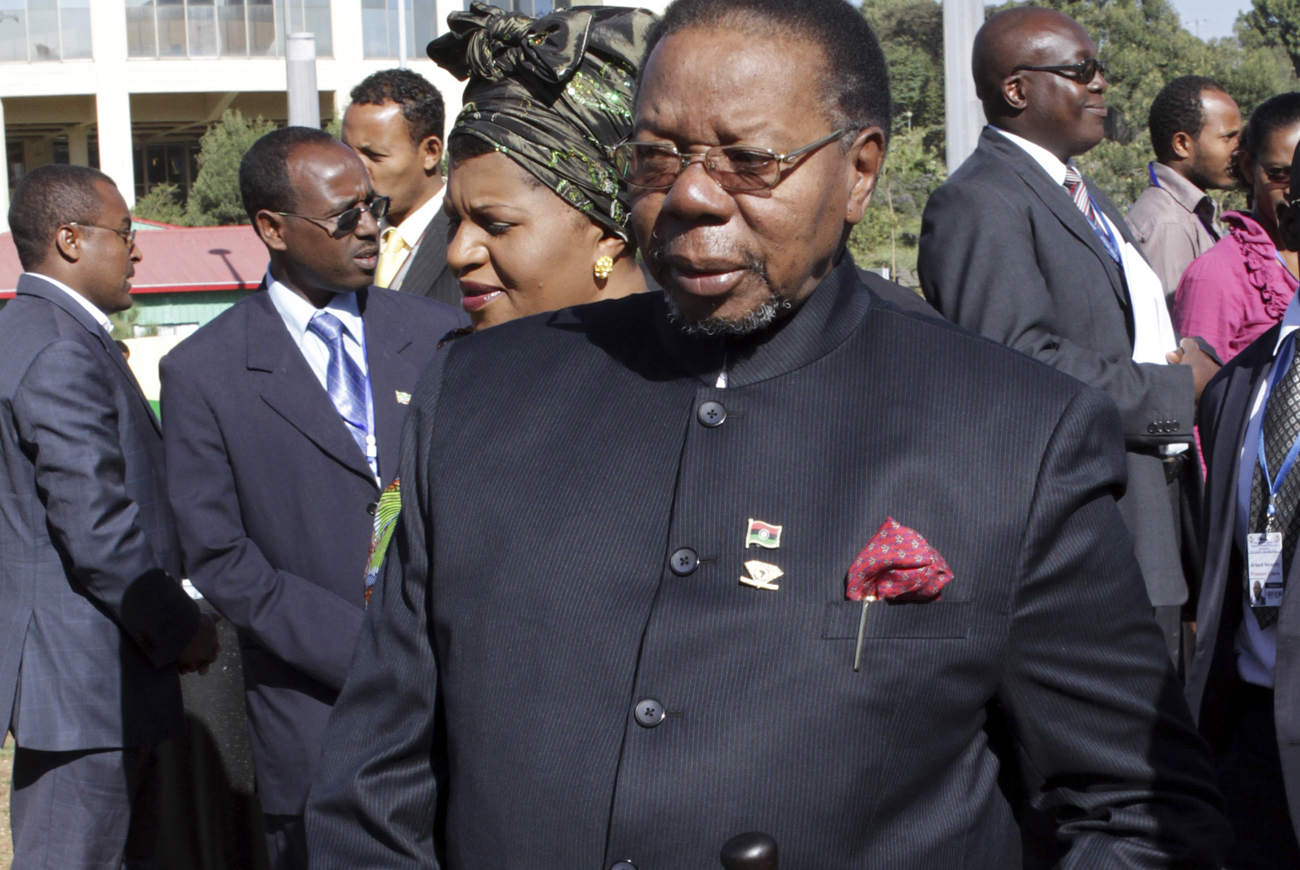During last year’s intervention in Libya, Nato was at pains to emphasise that it wasn’t trying to assassinate Muammar Gaddafi. If he happened to be killed in a strike against a command and control target, then so be it, they said. But they weren’t going to aim for him.
At one point, a good six weeks before Gaddafi was eventually killed by rebel militias, a Nato spokesman said Gaddafi wasn’t that important anyway because the solution to Libya would be “political”, whatever that means.
It was a position that always puzzled me. In a one-party state governed by Gaddafi’s cult of personality, it was clear that trying to separate him and his government was impossible. Perhaps it was also unfair on all the ordinary foot soldiers and civilians who died while Nato targeted everything else except Gaddafi himself. His death, when it finally came, was the defining moment of the revolution, the catharsis Libya required before it could move into its new era. But this catharsis didn’t come cheap. Tens of thousands of people had to die first.
This is all relevant because, even though Malawi’s catharsis happened rather differently it was nonetheless going through the early stages of similar problems. The man in charge, President Bingu wa Mutharika, was slowly consolidating power in the office of the president and enforcing his own cult of personality through comparisons to Jesus and bizarre titles like “economist-in-chief”.
The official opposition was being slowly throttled as the line between the state and the ruling party blurred. Meanwhile, some very bad decisions devastated Malawi’s economy, leaving the country direly short of fuel and foreign exchange.
Popular discontent was simmering. There was some talk of revolution, of an Arab Spring-style movement to force Mutharika from office.
There were mass protests and brutal police crackdowns. The situation was getting very ugly indeed.
Then, suddenly, the president died. The poetic justice in his probably preventable death is uncomfortable but undeniable. Reuters reported how relatively basic medication that could have saved his life was not in stock. The foreign-exchange shortages caused by the president’s economic policies meant no funds were available for their purchase. Life-support machines that might have helped couldn’t have done so for long, because the hospital’s emergency generator was out of diesel, a casualty of the dire fuel scarcity, another of Mutharika’s legacies.
And sure enough, his death has changed everything. As per the constitution, the presidency has passed to vice-president Joyce Banda, after backroom machinations to prevent her acceding to the position failed. There was no love lost between Banda and Mutharika. He expelled her from the party to make way for his brother to succeed him. He prevented her from attending cabinet meetings.
Banda has moved quickly to dismiss some of Mutharika’s biggest allies, including the chief of police, the head of state TV and radio, and the minister of information. Parliamentarians from the ruling Democratic People’s Party have defected to Banda’s new and still disorganised People’s Party in their scores, pledging allegiance to the new president and backpedalling on previous criticism.
Negotiations, suspended in response to Mutharika’s growing authoritarianism, have been re-opened with foreign countries to restore aid to Malawi. Banda herself has received plaudits from around the continent, hailed as an honest politician who is only Africa’s second female head of state.
Even Madonna joined the praise chorus: “She was really into girls being educated in Africa, which is a good thing. So, I'm glad,” was the pop star’s erudite reaction.
In Malawi now, there’s a lot less talk of revolution. The civil society organisations that were behind the popular protests are for the most part remaining cautious, but optimistic. After all, their ire was for the most part directed at Mutharika himself, but now he’s gone. And given that Banda had aligned herself with this popular movement, it’s likely she will attempt to implement some of their broader demands, particularly around economic and political reform.
However you look at it, Malawi’s political situation has changed unrecognisably since Mutharika’s death. All signs point to it changing for the better. Did this need a revolution, or a mass movement, or a bombing campaign, or thousands of casualties? No. It needed just one man to be removed from power, a pertinent example of the influence that an individual can wield on an entire country.
It’s a lesson Nato can learn for its next intervention. Perhaps if it had targeted Gaddafi from the very beginning, rather than levelling half the country and deliberately not targeting him, Libya might have enjoyed a smoother transition. Or perhaps not. Libya is a very different place, after all.
While it might be distasteful to celebrate Mutharika’s death – though it hasn’t stopped plenty of Malawians from doing just that – the country can celebrate a sudden turn in its fortunes. Instead of staring at a nascent dictatorship, Malawi is looking at reforms, democracy and the restoration of the aid money on which its economy relies. It took an act of God, because Mutharika wasn’t going anywhere on his own, but no one will mind too much. Sometimes, even God gets things right. DM
Read more:
- Malawi paid price for ego of “Economist-in-Chief” on Reuters.
- Malawi’s first female president: a quiet and earth-shaking victory on Huffington Post.
- Man is smart, but is woman smarter? in the Nyasa Times.
- Malawi: new president, old problems on Daily Maverick.
Photo: Malawi President Bingu wa Mutharika attends the 18th African Union (AU) summit in Ethiopia's capital Addis Ababa in this January 29, 2012 photo. President Mutharika has died after a heart attack, medical and government sources said on on 6 April 2012. REUTERS/Noor Khamis.






